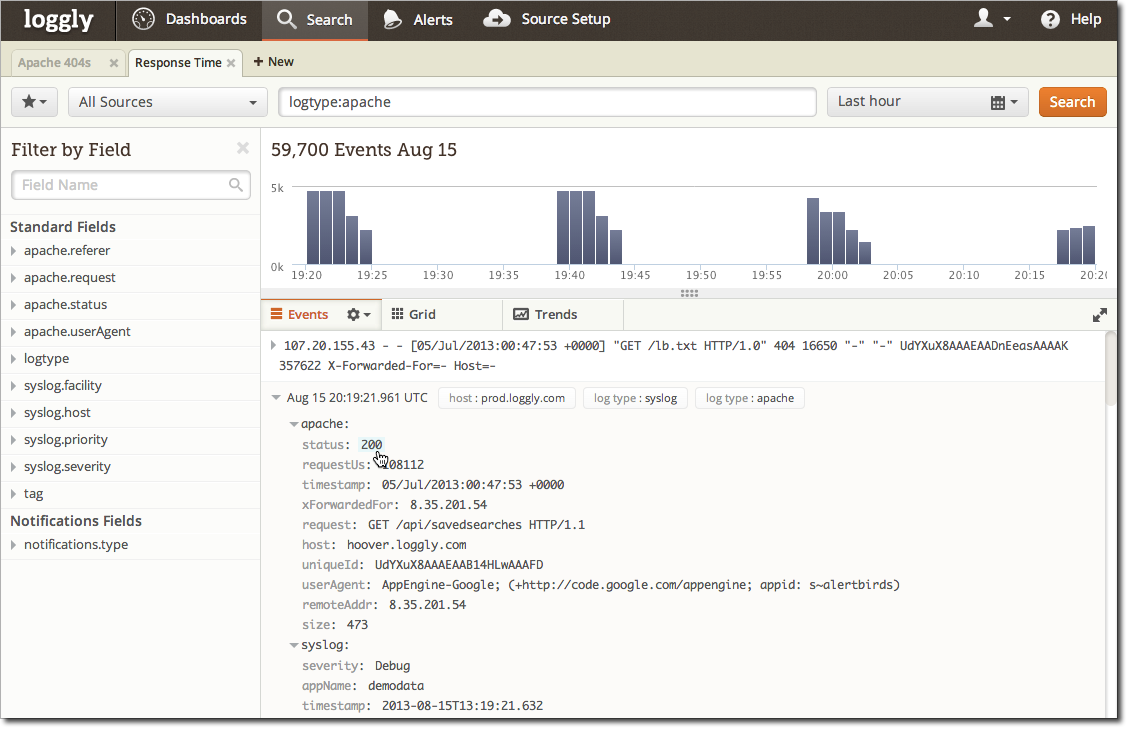

Kibana to visualize the logs from Elasticsearch.Ī minimal Filebeat configuration for this use-case would be:.Filebeat to collect the logs and forward them to Elasticsearch. Now since that’s done we can start installing Filebeat and Logstash.Elasticsearch to generate the logs, but also to store them. When you use our OpenSearch endpoint with filebeat, it will use the ingest module to parse and structure the logs.I’m sticking to the Elasticsearch module here since it can demo the scenario with just three components: But theres little essays which could be helpful to me.
 It doesn’t (yet) have visualizations, dashboards, or Machine Learning jobs, but many other modules provide them out of the box.Īll you need to do is to enable the module with filebeat modules enable elasticsearch. I read a the formal docs and wanna build my own filebeat module to parse my log. Add an ingest pipeline to parse the various log files. deb/rpm sudo filebeat modules list sudo filebeat modules enable apache macOS cd .
It doesn’t (yet) have visualizations, dashboards, or Machine Learning jobs, but many other modules provide them out of the box.Īll you need to do is to enable the module with filebeat modules enable elasticsearch. I read a the formal docs and wanna build my own filebeat module to parse my log. Add an ingest pipeline to parse the various log files. deb/rpm sudo filebeat modules list sudo filebeat modules enable apache macOS cd . You will need to enable the apache module.
Collect multiline logs as a single event. Step 2 - Enable the Apache module There are several built in filebeat modules you can use. For example: if the webserver logs will contain on apache.log file, auth.log contains authentication logs. grep Apache log only for a range of dates, assume from 5/Nov/2010 to 5/Dec/2010. This doesnt require any sort of date parsing and can be accomplished easily with sed: This tells said to show lines ( p) starting with 15/Nov/2010 through the end of the file ( ). Set the default paths based on the operating system to the log files of Elasticsearch. grep Apache log starting from 15/Nov/2010 until the last log entry. Therefore we can send Apache logs to Graylog by piping the log data through nc (or ncat ). For example, the Elasticsearch module adds the features: Apache is capable of writing error and access log files through a pipe to another process, rather than directly to a file. If you are a Linux user, then you can parse the Nginx logs using commands or the Nginx analyzer tools. Installed as an agent on your servers, Filebeat monitors the log files or locations that you specify, collects log events, and forwards them įilebeat modules simplify the collection, parsing, and visualization of common log formats.Ĭurrently, there are 70 modules for web servers, databases, cloud services,… and the list grows with every release. You can parse Nginx access logs to monitor, analyze, and optimize your web server. Filebeat and Filebeat Modules #įilebeat is a lightweight shipper for forwarding and centralizing log data. If you’re only interested in the final solution, jump to Plan D. filebeat setup -e service filebeat start 5. The last command starts Filebeat as a service which will then monitor the log files for changes and send them to Elasticsearch. Using only the s3 input, log messages will be stored in the message field in each event without any parsing. Every line in each log file will become a separate event and will be stored in the configured Filebeat output, like Elasticsearch. While writing another blog post, I realized that using Filebeat modules with Docker or Kubernetes is less evident than it should be. Run Filebeat The first of the last 2 commands creates the index in Elasticsearch (defaults to filebeat-) and creates default dashboards in Kibana. Filebeat modules are ready-made configurations for common log types such as Apache, Nginx, and MySQL logs that can be used to simplify the process of configuring Filebeat, parsing the data, and. By enabling Filebeat with s3 input, users will be able to collect logs from AWS S3 buckets. Adding Docker and Kubernetes to the Mix. Here is my filebeats configuration: output: Our goal for this post is to work with Nginx access log, so we need Filebeat. 
logs, metrics, network data, uptime/availabitily monitoring) to a service for further processing or directly into Elasticsearch.

I am using nginx module for filebeats to send log data to elasticsearch. Filebeat a log shipper Filebeat is a part of beats family by Elastic.








 0 kommentar(er)
0 kommentar(er)
